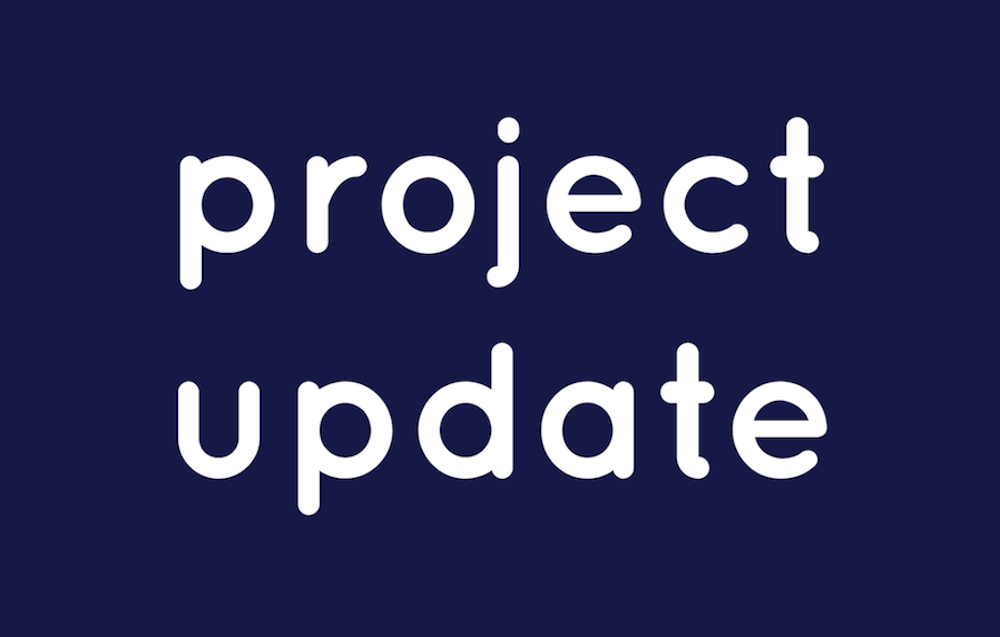Digital Health CRC’s research program continues to build strongly, with a substantial number of projects with our industry and university participants now finalised and approved for commencement.
Ten major digital health R&D projects are now being rolled out through our research program, with more anticipated to be signed off in the coming weeks and months.
“We are immensely excited to be ramping up our research program and bringing online many critical research projects that stand to benefit the health sector and health consumers everywhere” CEO of the Digital Health CRC, Dr Victor Pantano, said.
“We look forward to further building our research program now and into 2020, and delivering the benefits of digital health across a wide range of health conditions and healthcare settings.”
Summaries of each of the projects will be posted on our website and included in our newsletter in the coming weeks.
In the meantime, two of the latest projects are outlined below.

Predicting resident deterioration and acute care needs
in aged care
Digital Health CRC Flagship Program under which project falls
Digitally coordinated and supported aged care management
Research participant
RMIT University
Research lead
Lawrence Cavedon – Professor and Associate Dean, Computer Science and IT
Industry participant
Telstra Corporation Limited (Telstra Health)
Industry leads
Larissa Briedis – A/g Head of Strategy and Policy
More information: Kirsten Jackson – kirsten.jackson@dhcrc.com / 02 8088 4222
Project description
This innovative project aims to keep more aged care residents out of emergency care, by developing new predictive algorithms for clinical software to help identify their deteriorating health early and reduce avoidable emergency hospitalisations.
The technology will assist health professionals by raising ‘early warning flags’ about an aged care resident’s deteriorating health. The health professional will then validate the warning, before further investigating and addressing the underlying health concern.
The project also aims to help aged care providers with the early identification of residents who are approaching end of life, so Advance Care Plans can be enacted.
Emergency hospitalisations are not only stressful for aged care residents and their families, but they also place significant additional demand on hospitals – so to be able to treat residents earlier, and avert the need for hospitalisation, is extremely important.
Similarly, the earlier it can be ascertained that an aged care resident is approaching end of life, the earlier their Advance Care Plan can be enacted – ultimately helping the aged care resident, their carers and families, and the aged care provider.
Importantly for aged care providers, better prediction of care needs is expected to enable more effective planning for staffing and clinical resources, which has been identified as a crucial factor by providers who use Telstra Health’s aged care software.
While clinical decision support (CDS) software to identify patient deterioration exists in acute care settings, there is no such software in aged care settings. Clinical information is often gathered manually and in formats that can be difficult to interrogate.
The project’s researchers will review – and seek to adapt – existing algorithms and decision support methods from the acute care sector. They will also consult with clinical providers regarding the signs and flags of patient deterioration (and how this might be identified from recorded data) and review and address ethical issues.
The new algorithms will first be tested using historical data and then applied to current data in a trial setting. Ultimately, they will be integrated into Telstra Health’s Clinical and Care Management software.
Telstra Health has offered providers using its Residential Aged Care Software to participate in the research – this has been met with a positive response from several providers.
As part of Digital Health CRC’s Industry-PhD program, a PhD student will be embedded within the research team.
See a joint media release relating to this project by clicking here.

Predictive modeling of health trajectories
Digital Health CRC Flagship Programs under which project falls
Changing health trajectories in chronic disease
Intelligent decision support to improve value and efficiency
Research participant
Western Sydney University (WSU)
Research lead for WSU
Associate Professor Kathy Tannous – Senior Research Fellow, Translational Health Research Institute
Industry participant
Health Management Systems (HMS)
Industry leads for HMS
Donna Price – Senior Vice President, New Markets
Dr Gary Call – Chief Medical Officer
Other party – research
Southern Methodist University (SMU)
Research lead for SMU
Dr Daniel Heitjan – Director, PhD, Chair of Statistical Science
More information: Mark Bucciarelli – Mark.Bucciarelli@dhcrc.com / 02 8088 4222
Project description
Every person’s health and wellness trajectory is different, and influenced by biological, environmental and social factors. Many of us will suffer from chronic diseases and some of us will experience adverse events as part of the care we receive. If we are unfortunate enough to have an accident, the timing and degree of our recovery will be different from one another, along with our ability to return to normal work and life.
The ability to predict which of us is at risk of developing a chronic disease, experiencing an adverse event as part of our care, or recovering poorly from an injury has enormous future value for improving health and wellness, reducing cost and maximising quality of life and productivity.
Predictive individual risk is not only useful for the purpose of targeting specific populations, but also, to the extent that the risk cannot be avoided, for the purpose of financial planning and allocation of healthcare resources.
Under this project, researchers from both WSU and SMU – and a PhD student from SMU – will work with one of Digital Health CRC’s US-based participants, HMS (www.hms.com), to develop algorithms that can both measure and predict risk at an individual level.
HMS is particularly interested in the following types of risk – the risk of preventable hospital re-admissions, the risk of developing chronic conditions such as diabetes and cardiovascular disease, and the risk of a significant progression of chronic disease (eg. the development of chronic kidney disease in patients with diabetes).
HMS has already developed solutions for Population Health Management, which include several aspects of risk management. This research is expected to complement and augment the existing solutions and add to the state-of-the-art in health predictive and prescriptive modeling.
While prediction of the incidence of chronic conditions and preventable hospitalisation is not a new topic in itself, it has never been done on comprehensive data of this type – including inpatient, outpatient and pharmacy data.



















